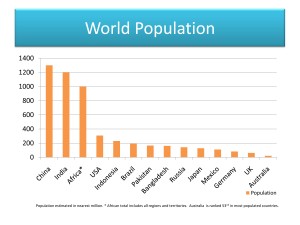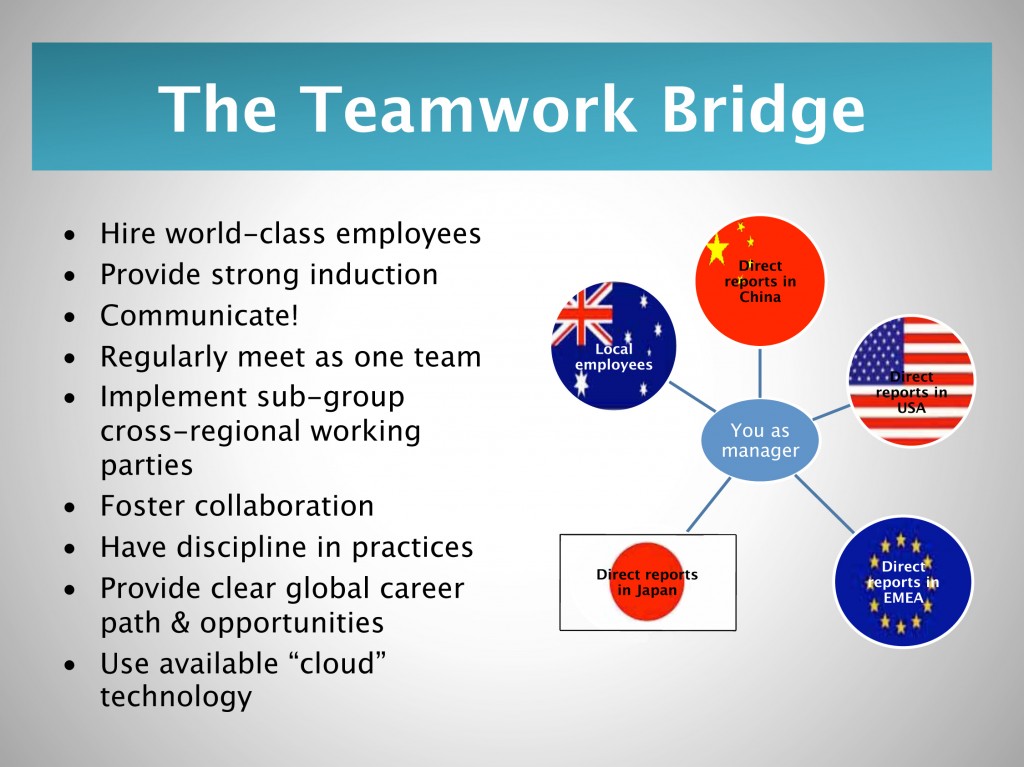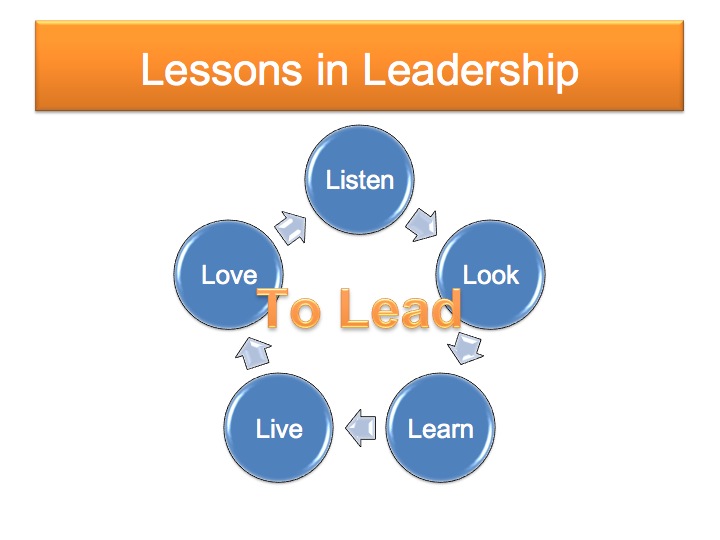Professional:
“I worked with and reported to Emma for over 5 years while I was CFO at Altium. As a business leader, Emma delivered a significant amount of organisational growth and development due in most part to her extraordinary levels of focus, drive, energy and determination. Emma’s ability to execute operational plans and to manage and motivate her teams to go above and beyond also set her apart. I learnt a great deal from Emma and very much enjoyed our professional relationship. She is a leader who earns respect and admiration for her skills and abilities and I would recommend her for any senior role without reservation.” Darren Charles, CFO Seeker Wireless and formerly CFO at Altium Limited
“During the 4 years I worked with Emma at Altium I saw her add incredible value across the breadth of the organization. She is a natural and dynamic leader who can build a meaningful vision and very effectively inspire others to pursue it. She sets high standards and leads by example in meeting such standards. Her energy, ability to operate strategically whilst still keeping sight of finer details, and her interpersonal skills are second to none. These attributes combined with her sharp intellect and extraordinary tenacity make her a very powerful leader who would be an asset in any senior leadership position.”Kerri-Ann Wilson, former Chief People Officer at Altium Limited
“I highly recommend Emma as a corporate leader, one who is capable of moving an organization and its employees through change to achieve its goals. Within a company that embraces change, it was with tremendous energy and dedication that Emma consistently translated Altium’s goals into workable strategies and motivated the organization into action. She has an eloquence that provided clarity of purpose, and the smarts to back it all up. With her strong presence, Emma soon became the voice of the organization. I thoroughly enjoyed working with Emma and found her to be approachable, level-headed, results-oriented, and confident – all characteristics of a respected leader. She is a true super-star!” Nancy Eastman, President Altium Inc, Director, Altium Designer Applied Technologies, Altium
“I worked with Emma Lo Russo for over 4 years at Altium both as a director-level colleague and as a direct report. At all times of our working relationship I would have to say that Emma’s most powerful and unique attributes are her extreme high levels of energy, focus and drive. Emma’s strong determination, tenacity and never-ending motivation results in an unstoppable ability to move mountains and execute (strategy and tactical initiatives) for success. Emma is strongly passionate about all that she works for and this excitement and passion is contagious to all those around her. This results in engaged teams that achieve to target. Emma is also a compelling spokesperson across a wide variety of subject matters and audiences. Anyone seeking a business leader/partner who will give their heart and soul and in doing bring a renewed sense of purpose to their organisation then Emma Lo Russo comes uniquely qualified.” Elisa Davies, Director & Corporate Communications Specialist, Altium
“I worked with Emma both as a direct report and as a peer for many years. She is a most inspirational leader, with a sharp intellect and a deep understanding of what makes people tick. She is fearless and strong and constantly pushes everyone to be the best they can be.” Ben Wells, Director, Embedded Intelligence, Sydney Technology Center, Altium
“Emma is an extremely strong leader who takes a strategic approach to business. Emma can lead and develop any part of a business she is asked to, while still helping grow and develop her direct reports, and therefore the organization at large. I would highly recommend Emma as a manager and business leader at any organization.”Leila DeJesus, Director, E-Learning & Education, Altium
“Emma is a force of nature. Every engagement with her is rooted in passion, a strategic grasp of the real objectives and opportunities, a clarity of the vision behind these, rigorous analysis of the tasks at hand, and an interest in the tactics needed to turn these engagements into something real and valuable. You leave every engagement with her, be it a conversation or a strategy session, much, much further ahead than when you entered! Her success as President and COO at Altium is a matter of public record, and she was a direct influence on a period of sales growth, profit, and expansion around the world. She certainly made my task of taking the company’s story to market much easier, and was a willing and effective advocate at the highest level, worldwide. Her successes since then have continued, being in demand as a speaker on strategy and management, and, typically, tapping what I regard as a missing link on social media management and analysis with Digivizer. Emma saw what was missing, understood what it meant to those of us seeking this sort of analysis, and has rapidly created the solution with her partners at Digivizer. It’s easy to bits of this, much harder to actually make it all work. Behind her success burns a fierce ethical fire that leaves nothing to compromise. This translates to leadership, empathy and a vigour for truth in business that I think sets her apart. Those of us who have had the opportunity to work with or alongside Emma understand that this results in a collaboration that is worth having. She supports the positive in those working with her and around her, exhorting them to focus on their strengths. And she combines all of this with business management skills that deliver financial and corporate results.” Alan Smith, Associate Director, Altium Corporate Communications
“Emma is extremely passionate person who gives 150% to any task that she undertakes. She is a woman of high intelligence and integrity and would be an enormous asset to any prospective company. Emma has great strategic vision while still controlling the finer details of the day to day running of the business. In her role as President and COO at Altium she was directly responsible for all aspects of the business including global marketing, global sales, finance, organisational development and new software and hardware product releases. She was also instumental in the company’s rebranding and was responsible for the broader elements of customer support, training and education. Her commitment to Altium’s success cannot be understated. She is extremely capable and very results focussed and drives her team to achieve their best. Emma worked particularly hard on significantly growing Altium’s Chinese Entity and Operations including the development of Altium’s IP protection strategy and was often called upon to host media and trade forums in the region. She is a voracious reader and a very fast learner, and has a great understanding of B2B and B2C sales and marketing and the IT industry in general.” Leanne Willing, Associate Director Relationship Marketing, Altium
“Emma employed me for a year as Associate Director of IT at Altium. Emma has a razor sharp mind, is very intelligent, quick to make good decisions and is excellent at demolishing barriers. She is the most fearless person I have ever encountered, she supports and pushes others to overcome their reservations and succeed where success did not look possible. She is challenging to work with, constantly questioning ‘Can we do better than this ?’- but I would work for her again in a heartbeat: she is loyal to her team and is rewarded with loyalty in return. She is an impressive and confident public speaker.” Dawn Gargett Belton, Associate Director, Business Information Systems, Altium
“Emma, in the short couple of years that I worked with you, you have defined yourself forever as a significant influence in my life. You have an iron fist but a heart of gold. You have shown absolute integrity in your personal and professional dealings and you have lead from the front in all that you do. Your ability to see the path ahead, set the agenda, and communicate it clearly throughout the organisation are characteristics that I can only hope to emulate one day. Your drive and passion are breathtaking and your strength of leadership and ability to inspire has an immediate effect on the team and brings the best out of us all. Your command of marketing and communications are consistently on the mark and I believe you will be a key asset to whatever organization you are given the reigns to. While I think you have already accomplished tremendous success, I have a deep sense that the best is yet to come and I would thoroughly recommend you to any organization bold enough to want to make a difference.” Marty Hauff, Global Customer Success Manager
“Throughout the 5 years I worked with Emma, I observed a talented and courageous individual demonstrate outstanding leadership skills. Like the conductor of a world-class orchestra, time and again Emma showed her deep understanding that an organisation’s greatest asset is its people, and her job was to enable and direct those people, from the front. Recruiting and developing her people with care and commitment, leading them with gusto and flair, Emma showed she has that rare combination of qualities of being a focused and determined leader who strives for and achieves their goals, all the while showing compassion, respect and humanity towards all in her team. Altium is an unusual organisation – unusual in that it has a very close, family-business type culture, where employees are relaxed and personal with one-another, while having some 300 employees spread across many countries and languages. Operating comfortably within this unusual organisation, Emma contributed to the global restructuring and growth of the business, guiding it through a number of strategic operational and organisational changes. Any organisation that is fortunate enough to have Emma as part of their team will be well rewarded by the presence of this warm, passionate, intelligent and talented individual.” Phil Loughead, Altium Designer Technical Specialist
“For the majority of the five years I have been employed at Altium I have reported directly to Emma in her role as Marketing Director, COO and President. I have found Emma to be a very inspiring and energetic leader with a unique mix of being highly intelligent and extremely personable. Her creativity introduced significant innovation into the organisation while always maintaining a strong sense of the corporate vision. Emma had the ability to bring together teams from various disciplines across the organisation (both locally and globally) and cause them to work as a cohesive, focused and highly successful group. I thoroughly enjoyed working for Emma and found her constantly encouraging, supportive and enthusiastic. I would highly recommend Emma as a leader who has a contagious passion and drive to see an organisation achieve their best”.Karen Beard, Manager, Product Release, Altium Ltd
“There is no doubt that throughout Emma’s time as a senior leader at Altium she significantly drove the organisation forward. Her unique and strategic ideas coupled with her incredible talent, infectious personality and fearless commitment to the overall success of the business and its customers, makes Emma a brilliant leader. I myself, went from strength to strength under Emma’s direction. She’s inspiring and motivating and in turn always gets world-class results out of employees and projects. A tremendous quality of Emma’s is that no matter what she has to achieve, how great the challenges are that she is facing – she always has time for you. She invests alot in those that she believes in and in return sees longevity and dedication that pushes all boundries from those who work for her. Emma is an invaluable assest for an organisation and I highly recommend her as a strong, passionate and very effective business leader.” Clare Jolly, Manager Business Projects, Altium
“Emma is a positive, strong, professional individual and I personally find Emma inspirational and motivating. I first met Emma while working at Altium – Emma made an immediate impact on me when I was first privy to one of her media interviews. Her passion and energy was contagious and I held an enormous respect for her as a leader of Altium. While I did not report to Emma directly, I always found Emma to be a highly skilled professional and a person of the highest integrity whom I looked up to. Emma’s dedication and skills are inspirational and a motivation for others to follow. One cannot be anything but inspired. I am so grateful for having met Emma and look to her as a successful role model and leader with a strong commitment that inspires people to do their best.” Karen Trafford, Associate Director, Taxation, Altium
“Emma and I worked together for 3 1/2 years while I was at Altium. Emma has a unique ability to have a great understanding and to have strategic insight into most aspects of a business. She was one of the people who I could always turn to for advice and we were always able to engage in discussions to collaboratively solve the most difficult problems. I have never seen Emma not give 110% to everything she engaged in, and the results always spoke for themselves. As a manager, Emma was fair and motivational; she had an uncanny ability of driving exceptional performance from her staff and this contributed to the great track record Emma maintained. Emma was not only the brains behind the operations at Altium but she also oversaw the implementation of her strategies. I would not hesitate to recommend Emma for any senior level role.” Dante DellAgnese, Sales Manager Australia & New Zealand, Altium
“During the past three years I have had the pleasure of working with Emma. She is a multi talented leader and highly regarded within the Altium organization. Emma has a great understanding of the electronics industry and the process and tools that encompass this market. She is never rash and maintains a calm professional demeanor in all situations. I have a great deal of respect for Emma both personally and professionally. She has my highest recommendation and Altium will miss her talents.”Daniel Fernsebner, Field Applications Engineering Manager, Altium Inc (US)
“At Cobe Design, Emma did an absolutely sterling job of simultaneously protecting and inspiring the entire studio. While her razor-sharp appraisals helped our clients meet their strategic goals quickly and effectively, her true strength was her committed leadership, which pushed Cobe Design into new and successful professional territory year after year.” Anthony Bullen, Creative Director, Cobe Design
“Thank you Emma for assisting with our team planning day. You did a wonderful job facilitating the day – you really energised the team, kept us on track with time and gave us a great framework for discussing the ideas and future directions for our programs. With your help we acheved our planned outcomes and are now moving forward to implementing our annual plans.” Sophie Ford, Youth and Family Team Manager, Red Cross NSW
“I would like to say a big thank you to Emma for her outstanding contribution in advising my business. I was really at a loss as to which direction to turn to around finding a low-cost marketing solution for my business as well as building an ongoing go-to-market strategy. Emma’s invaluable advice and discussion points have helped me no end. I wasn’t aware that there were so many vaulable tools at my fingertips. I also appreciate the honesty with which Emma provided feedback and the amount of time she spent reviewing my business before and after our engagement – it showed that she was genuinely interested in seeing my business move forward. Thank you Emma for all of your help and I would have no hesitation in recommending you to anyone who is looking to move their business to the next level.” Michelle Painter, Founder & CEO, ilovereading www.ilovereading.com
“I had the pleasure to work with Emma for a small business start-up. Emma’s experience, knowledge and creativity has made an unparalleled impression on me, especially around business positioning and commercialization. Emma’s energy and passion is very inspiring, her professionalism, helpfulness and kindness admirable. Grateful for having met Emma, I would be happy to remain associated with her as a friend, role model and business partner.” Uta Beyer, Uta Beyer Business Consulting
Speaking:
“It was an absolute pleasure to work with Emma at my recent conference, the inaugural “International HR Shared Services 2010” in Kuala Lumpur, Malaysia. Emma was one of the biggest reasons for the event to be successful with her excellent chairing of the event. Emma happily agreed to my request for taking up the role of chairperson for both the days of the conference, a role which she totally excelled at. Her experience from the business side, was vital to bring a totally different perspective to the HR conference. Each and every participant at the conference came up to me to congratulate me for being able to get Emma at the event as a key speaker and as a chairperson. The theme of the event was about being proactive and strategic, something which Emma was even while chairing the event. She was proactive, in experimenting, which led to better audience engagement, and was also strategic in her thought process. It was really a delight to work with her, and I will make sure that both mine and Emma’ paths cross again for a future event. I recommend her wholeheartedly to everyone.” Sidharth Mehta, Senior Project Manager – Business Conferences , Fleming Gulf
“This is just a quick note to thank you for your participation as Chair at the recently held International HR Shared Services Conference 2010 in Malaysia. As you know, I was not just a participant at this event but also a key note speaker. I have been to numerous conferences over the years and may I congratulate you on the way that you fulfilled the crucial role of Chair. You single handedly ensured that the conference timing was adhered too, that the participants were challenged and that interesting discussion, debate and sharing of information became the ‘glue’ of the conference. I received a number of comments from the participants over the obvious level of professionalism and experience that you brought to this conference and I wholeheartedly agree. A big congratulations and well done. I would be more than happy to attend a top level conference in the future and see you as the Chair, as I will be re-assured that it will be in good, professionals and capable hands.” Richard Ganter, Regional HR Director – Asia Pacific, CH2M
“I had a chance to briefly work & interact with Emma in recent HR Shared Services conference in Malaysia (Aug 2010) organized by Fleming Gulf. Emma was Chairing the above confernece, besides presenting & participating in panel discussions & other team events. As a Chairperson, Emma did extremely well to add a great value to the event by engaging the delegates & ensuring the maximum participation from all. I can confidently say that Emma’s being the Chairperson, the event was well balanced & surely helped the organizers, delegates & speakers in a great way. Apart from that, Emma is a great Leader & excellent speaker. Her presentation, concepts & other insights were also very creative & shall definitely be helpful in some or the other way in our HR journey going forward. I wish Emma “All the best” in all her endeavors & assignments.” Deepak Mendiratta, HR Shared Services Director, Aricent (previously Hughes/Flextronics Software Systems)
“Emma’s impact on the Fox team was immediate, profound, powerful and lasting. Her own career and family set the scene and provided the personable perspectives that allowed everybody to identify with the challenges and opportunities before them. Emma presented these together with self taught and self styled solutions in an insightful and humorous manner. Emma presented the notion of ‘personal branding’ that the audience intently identified with. Most chose to address the disconnect between their desired state or ‘personal brand’ and that by which they behave and or are perceived by others. Her demonstration and own application of the 4 key pillars of Work, Family, Health and Spiritual well being was very pragmatic and her own trials and anecdotes provided key insights on how to practically juggle the demands of each of the key pillars at different times, whilst moving forwards towards each individual’s collective definition of success. By nature of her personal reflections, Emma made the audience feel OK about their own journey, successes or otherwise, and how the challenge of juggling work life balance isn’t so insurmountable in the pursuit of a higher state of being and sense of achievement. I could safely say on behalf of my team that Emma inspired us to make a serious commitment to learning from and developing along the lines of renewing our goals and priorities, finding work life balance and committing to thinking about and managing our ‘personal brand’ in the pursuit of further success.” Craig L White, VP of Sales, 20th Century Fox
“Emma is an exceptional thinker, coach and guide. Given her experiences as a business leader, a mother and highly conscious contributor to society, it is not surprising. She enhanced TiE Conferences with Keynote & Workshop Panel leadership, sharing her immense wisdom and knowledge and inspiring others to take action. It is great to be associated with Emma.” Murali Dharan, President TiE Sydney
“Emma Lo Russo was the special guest speaker for the February session of the Sydney Professional Development Forum, a forum set up by ambitious young professionals in Sydney to discuss and learn about the secrets to career success. The topic of her presentation was “Engaging with the Dragon: China’s Unique Cultural & Business Environment”. Emma’s presentation captivated the audience throughout the entire presentation, her easy-going style and authenticity allowed her to engage well with the participants of the forum. Her unique point-of-view on the approach to deal with the challenging environment in China was backed up by her real-life experiences in dealing with the cultural disparaties between east and west. The presentation was timely for many of the young professionals in attendance as we grapple with the challenges and opportunities posed by the rise of the dragon. Most memorable in her presentation was during the Q&A session following, giving further insights based on her vast experiences throughout her career including challenges in maintaining a work/life balance. The session was a truly worthwhile investment for the participants involved with subsequent overwhelmingly positive feedback. We would without doubt like to have her back in the future.” Jeffery Wang – Founder of the Sydney Professional Development Forum
“We would like to sincerely thank you for your time and for such an excellent presentation (one of our best yet). Judging by the number of people ambushing you with questions at the end of the session and the number of very positive emails flowing around this morning, I think it’s a testament to how much the audience connected with your message. Thanks again for your time and for such an excellent presentation”. Andrew Chou, Co-organizer Sydney Professional Development Forum
“Emma was highly recommended as a speaker for the Licensing Executives Society (LESANZ) Annual Conference in Canberra in April 2009. In the session “Working with the Dragon – engagement with China”. Emma’s talk on “Doing Business in China: the Altium experience” was fantastic! She was engaging in her presentation style and most importantly the content of her talk was insightful, interesting, relevant and useful. This was reflected in the feedback from conference attendees who indicated that her session was one of the highlights of the conference. The LESANZ conference was themed “Creating and Driving Impact” and Emma’s contribution to the conference certainly achieved this both as an individual and evident from the approaches her company Altium are taking.” Stephanie von Gavel, Chair – LESANZ 09 Organising Committee, ACT Regional Chair LESANZ
“Emma gave an inspirational, insightful, informative talk as a key note speaker on “Growth In a Connected World” at the breakfast seminar organised by us and well attended by senior managers and owners from SME. Thanks to Emma for her innovative approach to business and ideas which was appreciated by the attendees. I would recommend Emma any time as a key note speaker.”Ganesh Natarajan, CEO, Ontrack Systems (Aus) Pty Ltd
“TiE Sydney selected Emma from a list of candidates to speak at TiE Sydney’s women’s forum. Emma was selected because she had the characteristics of an inspiring and smart professional business woman who could give great insight into developing and leading a global company through significant growth into a multimillion dollar plus success. Not only this, Emma is a mother to three children. The event was sold out and the feedback from TiE members and guests was overwhelming. If anyone wants to hear a great business success story combined with juggling three children and a wonderful marriage, Emma is inspiring that life and work balance can be managed successfully.”Therese Minehan, Account Director/Business Development Director at Buchan Consulting & Events & PR Manager for TiE Sydney.
“I want to tell you how much we enjoyed both your presentations to our group. Your talks gave a great boost to the motivation and efforts women need to continue to run their own businesses. Your topics were personal and you presented the material in a way that everyone could understand and feel connected with you. By any measure you are a very effective speaker and educator. On behalf of the Australian Businesswomen’s Network, thank you for a memorable presentation and we hope you will continue to inspire fellow businesswomen in the future and we thank you for your involvement.” Suzi Dafnis, Community Director, Australian Businesswomen’s Network
“I highly recommend Emma as a speaker. She presented on “Turning your Product into a Business” at BootUpCamp 2009. Not only did she deliver an excellent presentation written specifically for the audience, she also stayed afterwards for several hours to help the teams individually and give invaluable advice. We had over 15 expert speakers at BootUpCamp and in the debrief the participants flagged Emma’s talk as one of the two they learned from most. If you can get Emma to speak/present at your event, you’re in luck. Her top qualities: Great Results, Expert, High Integrity.” Bart Jellema, Director of all things Cool and Wonderful, Tjoos Pty Ltd and one of the Founders and organizers of BootUpCamp Australia
“As Project Coordinator of the Australia-China Young Leaders Program, on behalf of the members of our project, I give great thanks to Emma Lo Russo’s contribution to the success of our “Asia-Pacific Business Forum” event as a main speaker and panellist.When one organises an event, he hopes to provide audiences with the most relevant, informative and engaging presentations. Emma Lo Russo’s presentation on the topic of “Altium’s success in China” was an example of a truly outstanding presentation. Her presentation was perfectly tailored to the business audience and Emma kept them engaged from start to finish, with cases and facts on the challenges, successes and opportunities for a business’s such as Altium’s in China. Emma produced a truly successful presentation that was both amazingly passionate and extremely informative and the Australia China Young Leaders Program strongly recommends Emma to anyone seeking outstanding public speakers or to run an outstandingly successful event. ” Rupert Tien Chiz Cheung, Project Coordinator 2008, Australia China Young Leaders Program, AIESEC Sydney
 Ever heard the saying “there is nothing more expensive than a cheap lawyer”? That lesson can easily be applied to the decisions we make every day regarding our business vendors.
Ever heard the saying “there is nothing more expensive than a cheap lawyer”? That lesson can easily be applied to the decisions we make every day regarding our business vendors.








